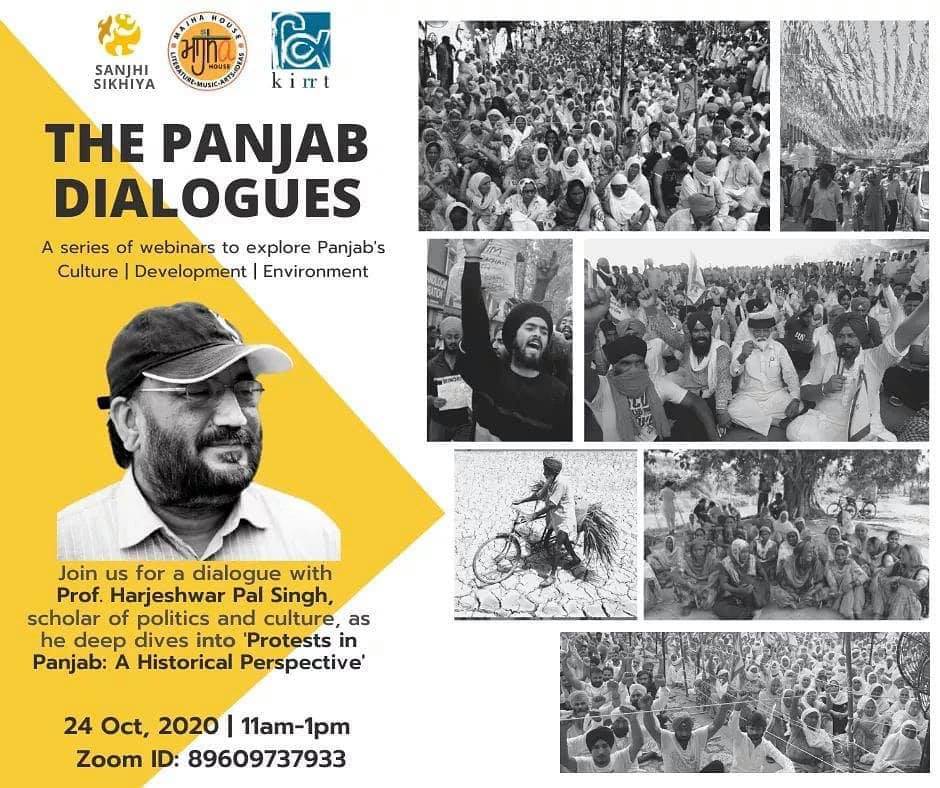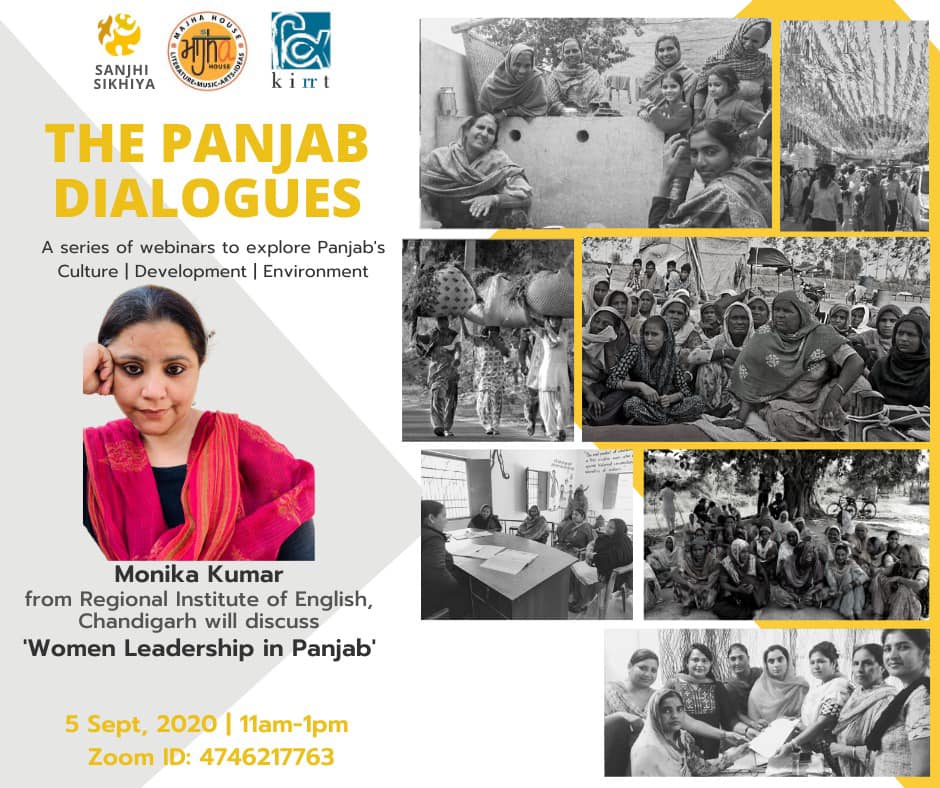The Panjab Dialogues – a collaboration between Majha House, Kirrt, and Sanjhi Shiksha
Panjab has been home to a rich syncretic culture even though through the decades it has seen its share of pain and bloodshed. Punjab also has indomitable spirit, ever resilient, ever hopeful and looking towards a more peaceful and prosperous future
The Panjab Dialogues celebrates this spirit of regeneration. We want to build this platform as an opportunity to listen, to learn and to see things differently as we aspire to produce and disseminate pro-people knowledge and build interface and linkages.
We start with abundance of ideas and we see ample opportunities to realize our dreams and we start with very little resources. Linkages with on-ground activists and innovators to take the ideas forward to show us (and India) how this is being managed.
On The Panjab Dialogues debate, discussion and action go hand in hand—as we make networks and connections across the country–learn from wherever we can. We strive to bring ideas together on domains as diverse as environment, culture and politics.
We place Panjab centre-stage and we look at getting on board innovative, path-breaking resource persons and practitioners, on ground activists who will take ideas forward.
Punjab Dialogues: Prof. Harjeshwar Pal Singh
The on-going farmer protests in Punjab have shaken the entire state to its core, uniting people for a common cause. In the past, Punjabi people across the world have come together to raise their voice against injustice, and these movements can be traced back in history. In this edition of the Panjab Dialogues, Prof. Harjeshwar Pal Singh will deep dive into ‘Protests in Panjab: A Historical Perspective’.
Date: 24th October, 2020
Time: 11am-1pm
Zoom ID: 896 0973 7933
Register Here: http://bit.ly/protestsinpanjab

Punjab Dialogues: Monika Kumar
One of the foundational principles of Sikhism is equality- across race, gender, caste and economical backgrounds. Women across Panjab have through the years gotten the opportunity to study, get a job and live life on their terms. However, the gender battle still continues – the opportunities for women to hold leadership positions is limited, gender-based violence is still widely prevalent in society and the depiction of panjabi women in entertainment is problematic.
In this edition of The Panjab Dialogues, Monika Kumar will explore the challenges faced by women, and discuss ‘Women Leadership in Panjab’

Punjab Dialogues: Such Singh Gill
*The Panjab Dialogues- Session 3 on July 4th, 2020*.
A collaboration between *Majha House, Kirrt and Sanjhi Sikhiya*, on The Panjab Dialogues discussion, collaboration and action go hand in hand. This platform is an opportunity to listen, to learn and to see things differently. We aspire to produce and disseminate pro-people knowledge and build interface and linkages.
The pandemic has had a major impact on society, with healthcare, education and the economy taking a major hit. On the third edition of the Panjab Dialogues, we are excited to have *Renowned Economist, Mr Sucha Singh Gill*, who will discuss with us the impact the pandemic has had on the Panjab economy, and what the way forward looks like.
Punjab Dialogues Session 2: Devinder Sharma
Agriculture is the backbone of Panjab and has seen massive changes over the last few decades.
On 6th June, we were joined by Mr Devinder Sharma, renowned food and agriculture policy analyst as our second speaker. He focused on Emerging trends and future possibilities in Agriculture, giving us a glimpse of the history and importance of the same for the land.
The Panjab Dialogues is in association with Sanjhi Sikhiya, Majha House and Kirrt.
The Panjab Dialogues Session #01 – Amandeep Sandhu
Session 1 on May 2, 2020 where our first speaker Amandeep Sandhu will talk about the critical issues that Panjab is facing. His new book Panjab: Journeys Through Fault Lines lays a foundation for the critical discussions we bring through this new platform. Present-day Panjab prides itself on legends of its military and valorous past even as it struggles with daily horrors. The Green Revolution has wreaked ecological havoc in the state, and a decade and a half of militancy has destabilised its economy and governance. Sikhism—the state’s eclectic and syncretic religion—is in crisis, its gatekeepers brooking no dissent and giving little spiritual guidance. And Panjab has yet to recover from the loss of its other half, now in Pakistan. Underneath it all, though, the old spirit of the land beats away—an undercurrent of resistance to power and hegemony that holds the hope that Panjab’s unyielding knots can be untied.

